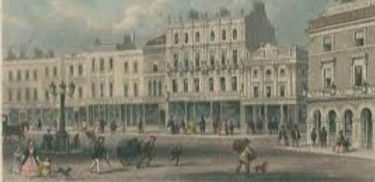

THE COURTESAN AND THE MUTINEER
What inspired me to write 'The Courtesan and the Mutineer'



I have to admit that 'The Courtesan and the Mutineer' is my favourite out of all of the novels I've written. It was the first storyline that I conceived back in 2009, when I was on maternity leave with my youngest son, Ciaran. It's full-on looking after a baby, there's sleepless nights, nappy changing, and breast-feeding, to name but a few, but you do get some time to yourself when they nap during the day. In the rare moments I did get to myself, I read 'The Bounty: The True Story of the Mutiny on the Bounty' by Caroline Alexander. As I've stated before, I love reading about history, especially finding out about the real story behind countless film and TV adaptations, and what REALLY happened, which is often a million times better then anything made up in heavily fictionalised dramatisations.
The book was an absolutely riveting read, and what really happened both at the time, and after the mutiny is very different from anything I've ever seen in films or on the telly.
Fletcher Christian, for a start, is no heroic Marlon Brando, and comes across as a bit of a prat! He did instigate the mutiny, but he was no leader of men, and he flaked towards the end, becoming even more overbearing than Bligh, and leading the remaining mutineers to a life of intolerable isolation on a bleak island in the middle of nowhere. Needless to say, unable to leave the tiny Pitcairn's Island, they all got on each other's nerves, which led to infighting, and then they eventually started bumping each other off, leaving only two alive. The last remaining mutineer, John Adams, was found in 1830, with a bunch of overworked and seriously pissed-off Tahitian women, plus the various offspring of the mutineers.
'The Courtesan' in the title is Polly Turner, who I have hailing from Southwark, a well known red-light area from the early Medieval era up until the early 19th Century. Polly starts with absolutely nothing, and is lured into prostitution out of necessity, but quickly rises to be a popular courtesan. Let me just state that I haven't used any experiences of prostitution, as I've never been that desperate or that down on my luck, and the main reason for her profession is that I wanted to highlight a fate of many women and young girls who were lured into sex-work.
Given her profession, Polly has a lot of relationships, and some of her partners are based on my own previous experiences. Jimmy Fitzgerald was based on a fling I had with someone I worked with back in the '90's, he was very funny and cracked me up, but he had a volatile temper and wasn't nice to be around at times. Bisham Andrews is based on someone I lived with in Colliers Wood, who also promised much but delivered little, and then I found out he was having an affair and he left me for another woman. Not a nice experience, and it's a theme that frequently crops up in a lot of my books, being lied to, and having your trust betrayed.
Polly's second husband Alex Lindo is based on someone I was seeing at college, and Jack St Rose is based on an old boyfriend from St Lucia who tried to teach me St Lucian patios, based on African and French, but I think he only taught me the rude words!
'The Mutineer', Fitzroy Jefferson, is a character based on Fletcher Christian, who was also flawed, serious, and prone to depression. The mutiny on the fictional 'Plenty' is based on the 'Bounty' incident, but I've changed all of the names of both those taking part and the ship involved, as I have given them a different fate from the Bounty mutineers. In my book they are all caught, returned to England and tried. I won't give away any spoilers, but the penalty for mutiny was death.
As I've already stated, this book was a joy to research, and included reading about late-Georgian life, the flesh-trade, life on board Royal Navy ships, as well as the Bounty mutiny.
Here are some of the books I used for research:
The Secret History of Georgian London: How the Wages of Sin Shaped the Capital by Dan Cruickshank
Harris's List of Covent Garden Ladies by Hallie Rubenhold
Boswell's London Journal 1762-63 by James Boswell
The Bounty: The True Story of the Mutiny on the Bounty by Caroline Alexander
The Bounty Mutiny by William Bligh and Edward Christian
Jack Tar: Life in Nelson's Navy by Lesley and Roy Adkins
London's Pleasures: From Restoration to Regency by David Kerr Cameron
Background: Borough High Street in 1780.
Ships in Deptford Great Dock in 1755 by John Cleverley the Elder.
Robert Dodd's 1790 depiction of the Mutiny on the Bounty.





